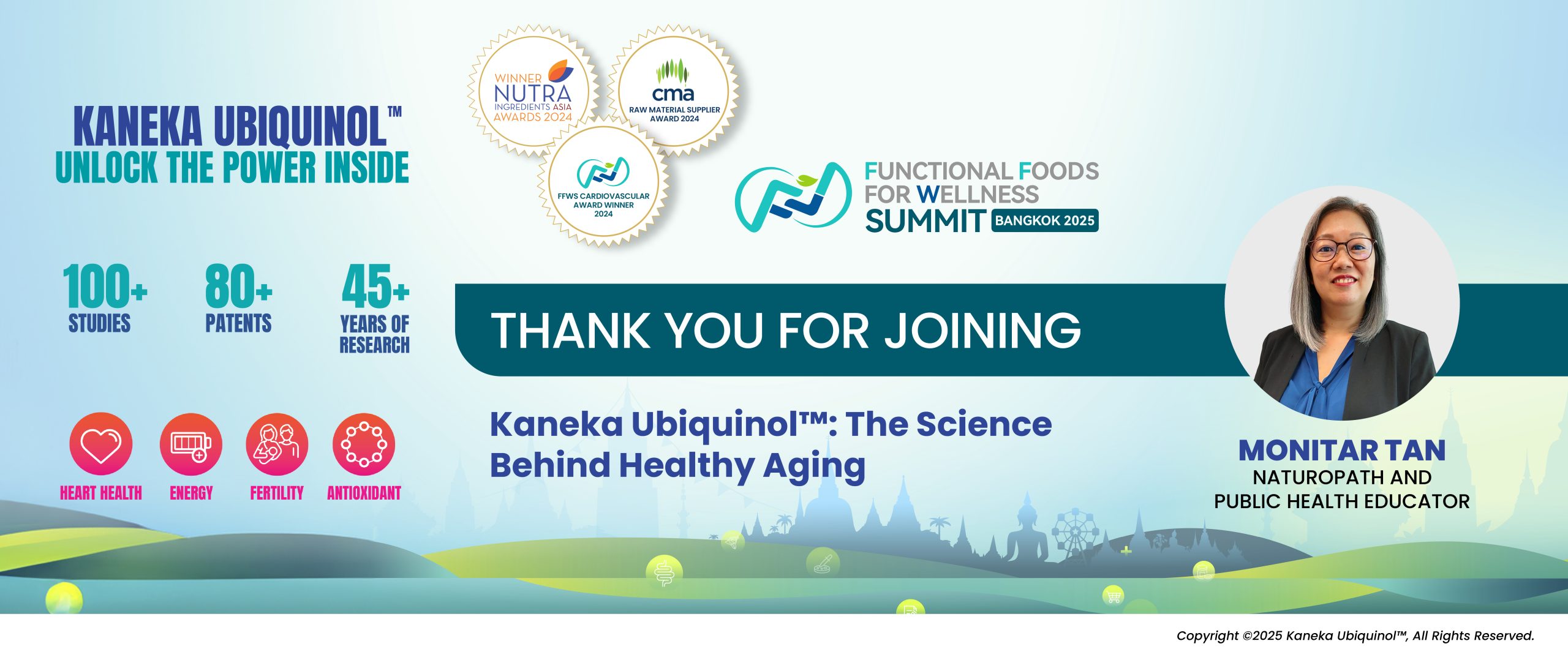3 Essentials for a Healthy Heart
Sep 2018Recent Article

For as long as you live, your heart never takes a rest. In fact the energy demands of the heart are among the highest in the body, requiring significant amounts of cellular energy to function.
So how can you best maintain a healthy heart and meet its energy requirements?
- Get moving!
Your heart is a muscle, and it gets stronger and healthier if you lead an active life. It’s never too late to start exercising, and you don’t have to be an athlete to reap the benefits.
Aerobic exercise such as brisk walking, jogging, bicycling, aerobics, skiing or rowing has the most benefits for your heart. Over time, it can help decrease your heart rate and blood pressure and improve your breathing and circulation.[1]
Australian guidelines recommend that adults 18-64 years are active on most days of the week. Aim for 2.5-5 hours of moderate intensity physical activity or 1.25-2.5 hours of vigorous intensity physical activity (or a combination of both), each week.[2]
However, if you currently do no physical activity, start by doing some, and gradually build up to the recommended amount. - Eat a heart-healthy Mediterranean diet
Research has found the Mediterranean diet is a potent heart protector compared to a regular low-fat diet.[3] A key component to this cardioprotection is replacing saturated and trans fats with mono- and polyunsaturated fats that can help lower cholesterol levels.3
The diet is heavy on fruits, vegetables, whole grains, fish, nuts, and olive oil, and places an emphasis on smarter food choices rather than food deprivation. It advises that people minimise diary products, red meat, processed meats and sweets. - Supplement with Ubiquinol
Ubiquinol is the active and readily bioavailable form of CoQ10 (Coenzyme Q10) – a nutrient found naturally in every cell of our bodies. It supports cellular energy throughout our body and helps our organs perform their function.
As we age – particularly after the age of 30 – and are exposed to lifestyle stresses, our bodies’ natural levels of Ubiquinol decline, as does our ability to convert CoQ10 to Ubiquinol.[4] This may affect our cardiovascular health, amongst other things.
Supplementing with Ubiquinol has many benefits. It may help support normal, fit cardiovascular functions as well as healthy cholesterol levels for your heart.
Find reputable Ubiquinol-containing supplements.
Always read the label. Use only as directed. If symptoms persist, consult your healthcare practitioner.
[1]https://www.medicinenet.com/fitness_exercise_for_a_healthy_heart/article.htm#what_are_examples_of_aerbic_exercises
[2] http://www.health.gov.au/internet/main/publishing.nsf/content/health-pubhlth-strateg-phys-act-guidelines#apaadult
[3] https://www.health.harvard.edu/heart-health/why-the-mediterranean-diet-is-so-good-for-your-heart
[4] Ernster L, Dallner G. Biochemical, physiological and medical aspects of ubiquinone function. Biochim Biophys Acta. 1995;1271(1):195-204.
You can share this by:
Keep up-to-date with Ubiquinol News
Ubiquinol Headlines
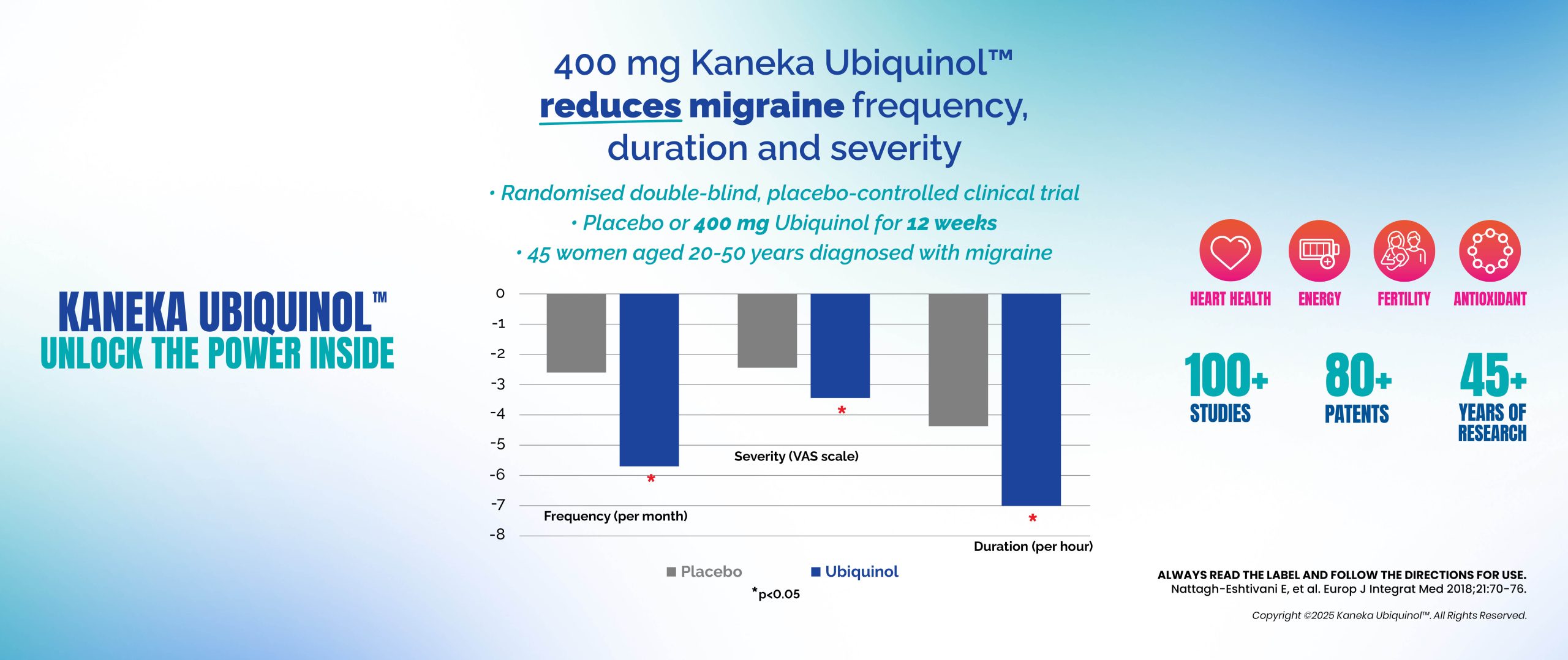
Ubiquinol: Supporting Migraine Relief Through Cellular Energy
Jan 2025Category: Antioxidants, complementary medicine, Energy, Fatigue, Health, Health Industry, healthy ageing, Kaneka, Mitochondrial health, Nutrition, Stress, Ubiquinol, Vitamins, wellnessRead More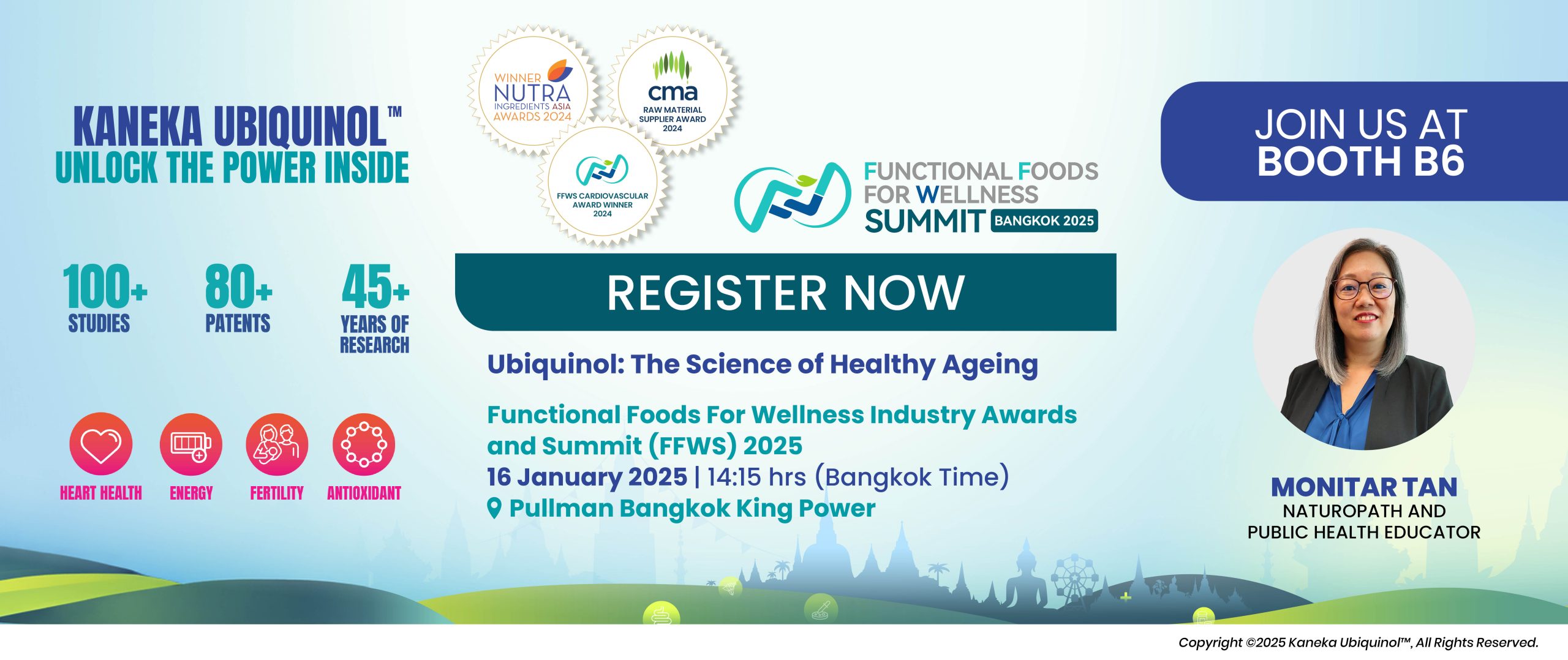
Kaneka Ubiquinol™ at Functional Foods for Wellness Industry Awards and Summit, #FFWS2025
Jan 2025Category: Ageing, Antioxidants, Awards, cardiovascular health, Conference, Conferences, Energy, Fatigue, FFWS2025, Health, Health Industry, healthy ageing, Kaneka, Menopause, Mitochondrial health, Nutrition, Ubiquinol, VitaminsRead More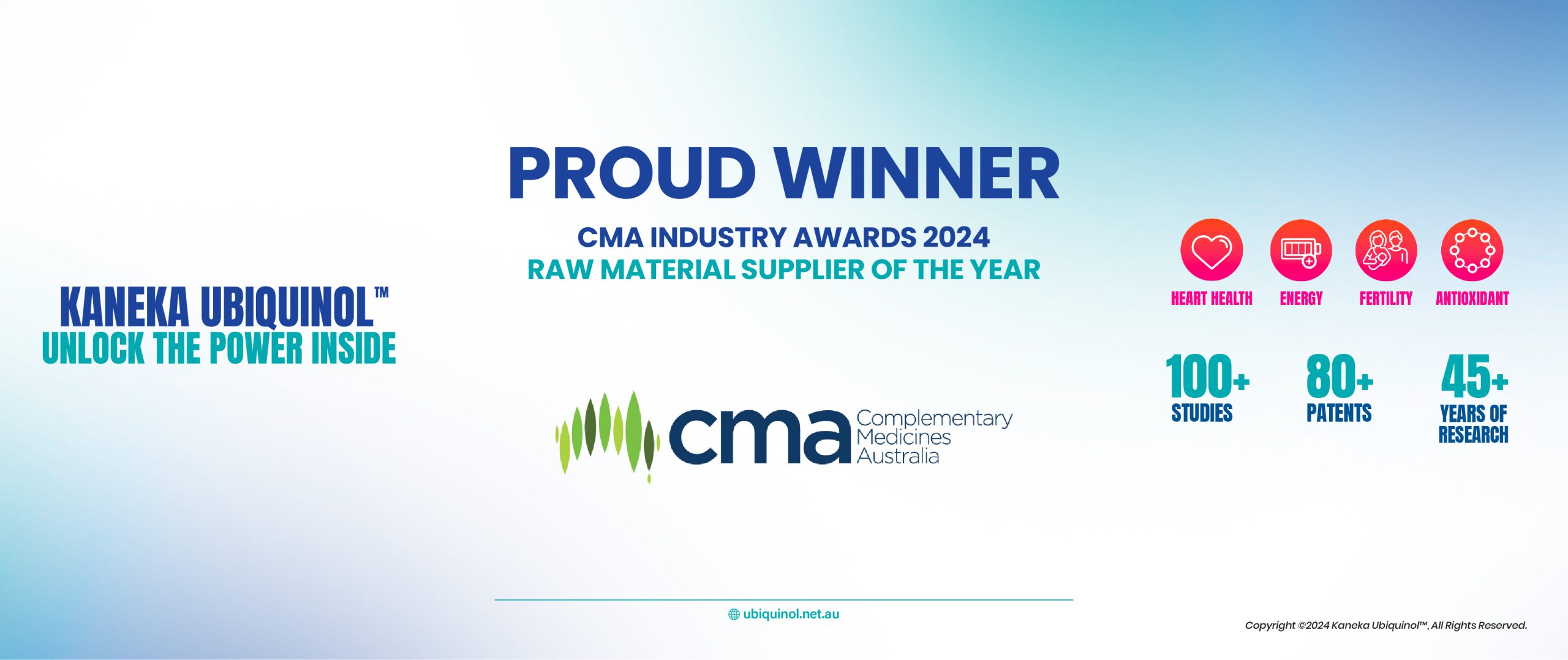
Kaneka Ubiquinol Wins Prestigious Complementary Medicines Raw Material Supplier of the Year Award 2024
Dec 2024Category: Ageing, Awards, cardiovascular health, complementary medicine, Conference, Conferences, Endurance, Energy, Fatigue, Fertility, Fitness, Health, Health Industry, healthy ageing, Heart, Immunity, In The News, Kaneka, Lungs, Memory, Mitochondrial health, Nutrition, Online, Stress, Ubiquinol, Vitamins, wellnessRead More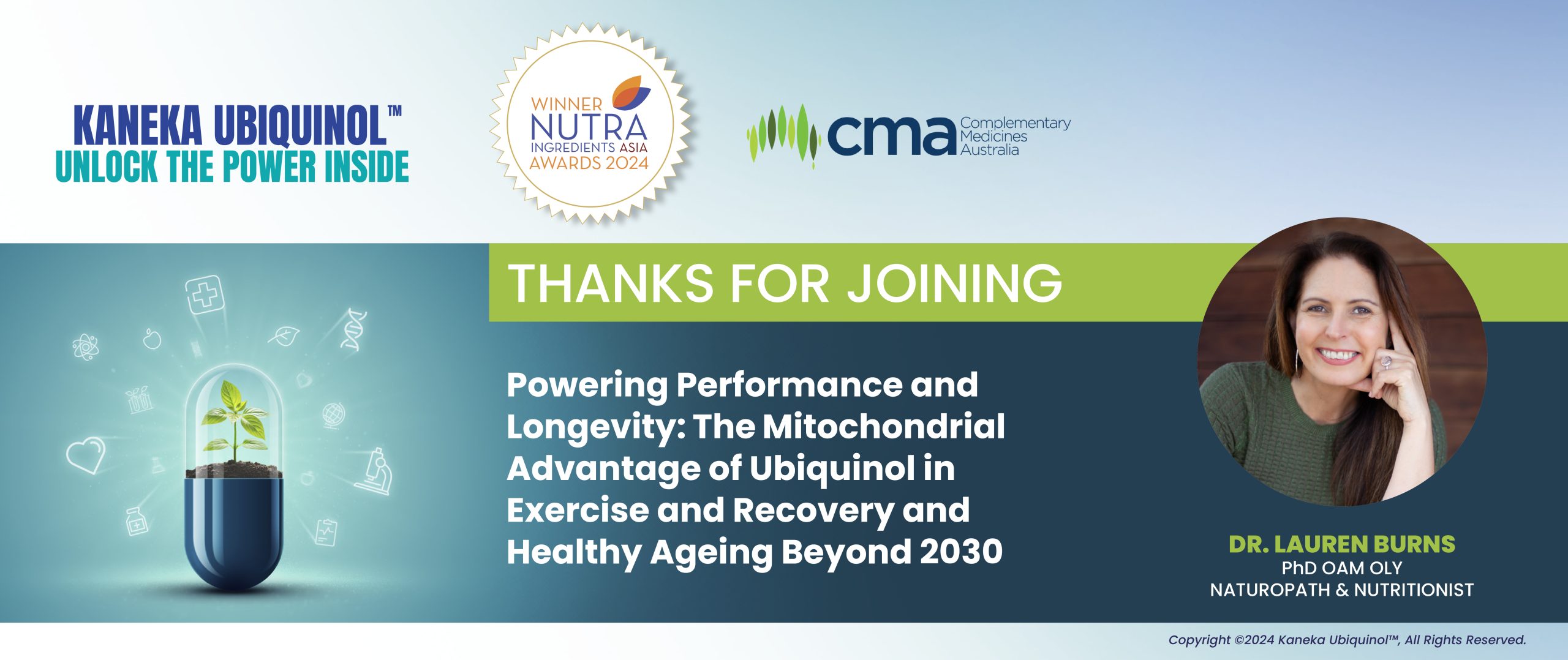
“Powering Performance and Longevity: Kaneka Ubiquinol™ at the CMA Annual Conference 2024”
Nov 2024Category: Ageing, Antioxidants, Awards, cardiovascular health, chronic fatigue syndrome, complementary medicine, Conference, Conferences, Endurance, Energy, Fatigue, Fertility, Fitness, Health, Health Industry, healthy ageing, Heart, In The News, Kaneka, Mitochondrial health, Online, Ubiquinol, VitaminsRead More
Natural Health Product Innovation Expo 2024
Nov 2024Category: Ageing, Antioxidants, cardiovascular health, Cholesterol, chronic fatigue syndrome, Conference, Conferences, Endurance, Energy, Fatigue, Fertility, Fitness, Health, Health Industry, healthy ageing, Heart, Kaneka, Menopause, Mitochondrial health, NHNZ, Nutrition, Stress, Ubiquinol, Vitamins, wellnessRead More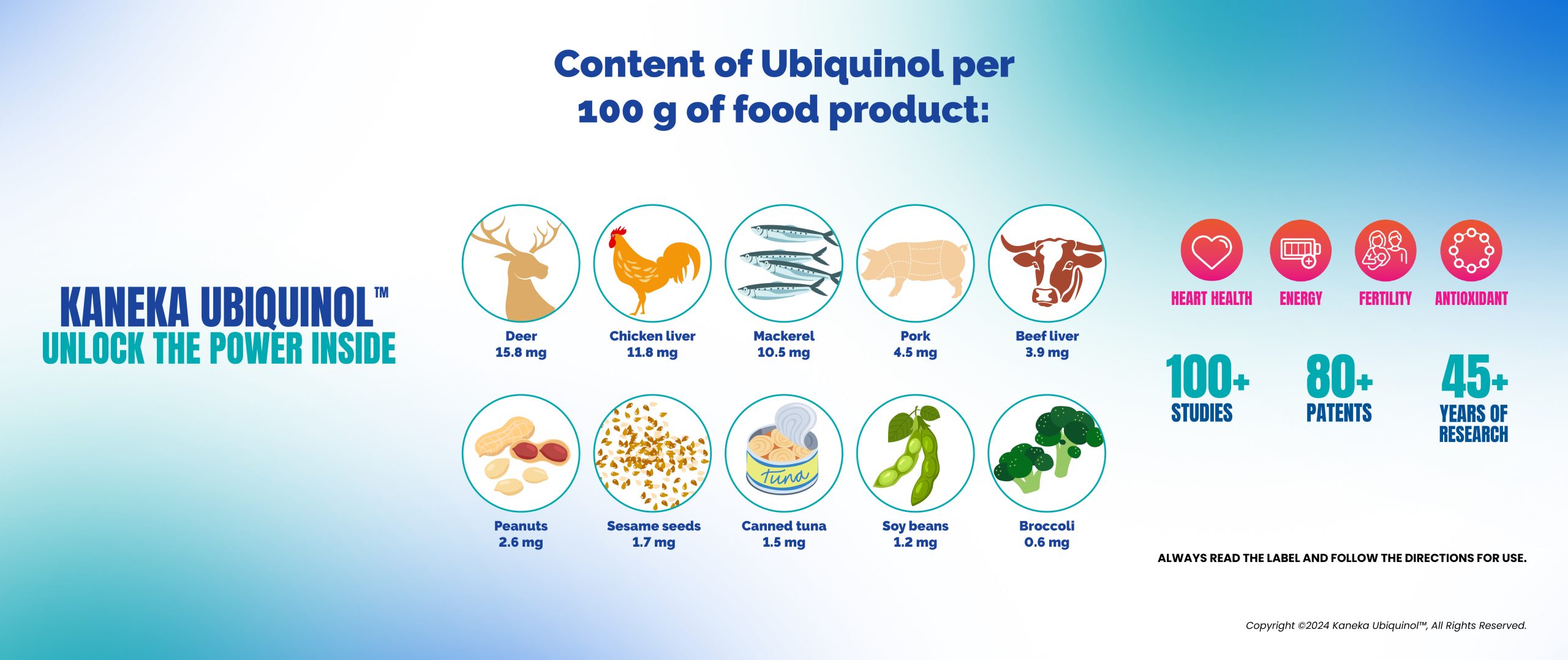
Ubiquinol: The Overlooked Nutrient for Vegans and Vegetarians
Oct 2024Category: Ageing, Antioxidants, Cholesterol, complementary medicine, Endurance, Energy, Fatigue, Fitness, Health, Health Industry, healthy ageing, Heart, Mitochondrial health, Nutrition, Stress, Ubiquinol, vitafoods, Vitamins, wellnessRead More
Investigating the Application of Ubiquinol in Mitochondrial Function
Oct 2024Category: Ageing, Antioxidants, cardiovascular health, Cholesterol, chronic fatigue syndrome, Endurance, Energy, Fatigue, Fertility, Fitness, Flu, Health, Health Industry, healthy ageing, Heart, Immunity, In The News, Kaneka, long covid, Lungs, Memory, Menopause, Mitochondrial health, myalgic encephalomyelitis, Nutrition, post pandemic, Stress, Ubiquinol, Vitamins, wellnessRead More


